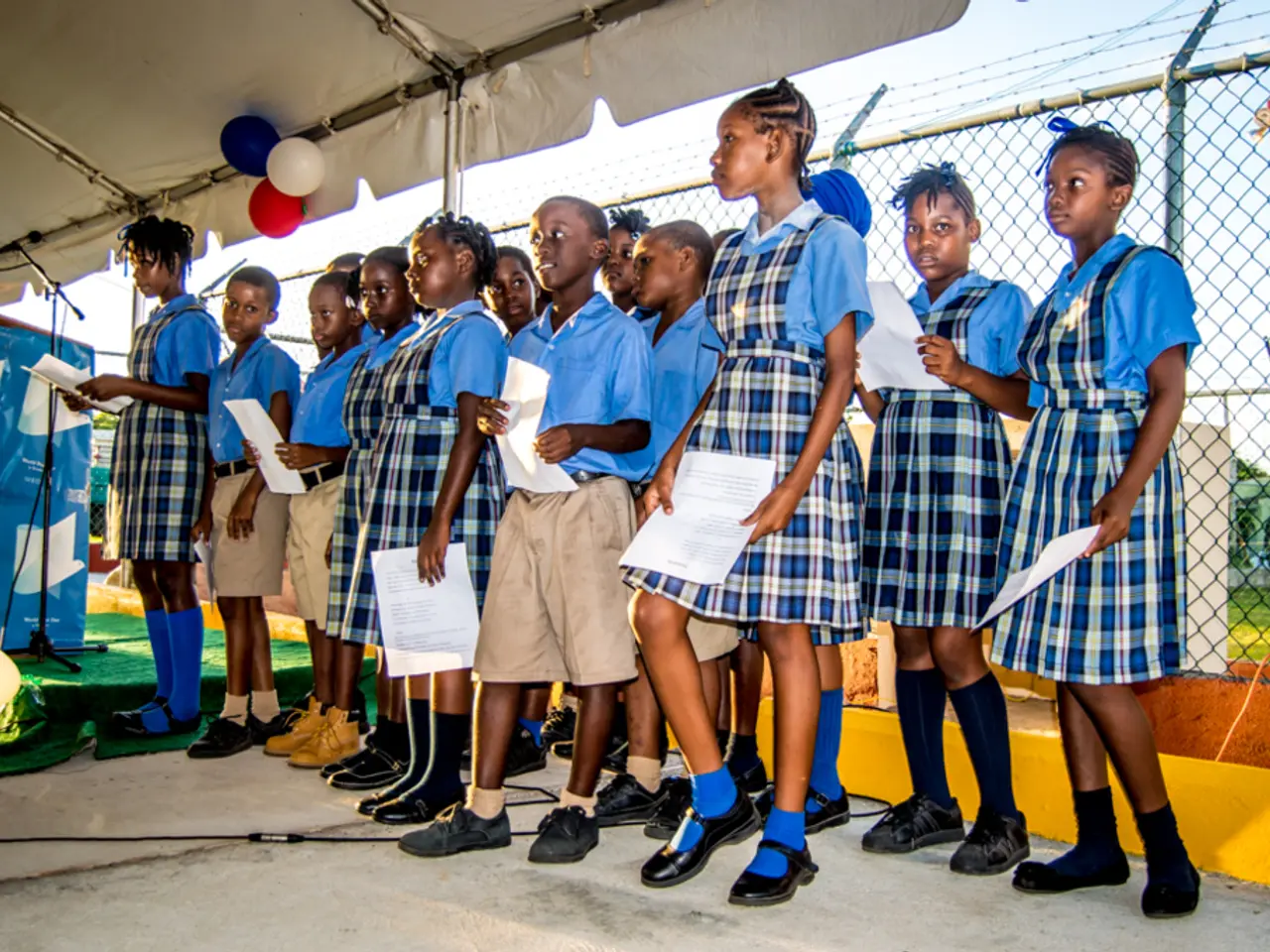Educational Resumption in Sudan: Optimism Carried in Schoolbags
In the heart of Sudan's Blue Nile State, a remarkable transformation is unfolding. Displaced children, refugees, and children from host communities are now learning together at Arabee Aradawiya girls' school, fostering social cohesion and healing.
Ten-year-old Aden, a pupil at the school, missed her teachers and looks forward to perfecting her favorite subject, mathematics. Walaa, a third-grader, deeply missed school as well. But now, they, along with 500 other students, including 120 displaced and refugee children, are attending this educational haven in Damazine.
The headmistress of the girls' school commended UNICEF for the timely support, while highlighting the enormous needs. Tawasol, a displaced girl from Khartoum, loves art and drawing and has found joy and new friendships in her new school.
However, the ongoing conflict has disrupted education for over 17 million children across Sudan. Families remain displaced, and there is substantial learning loss from more than two years out of school. Security concerns and instability also create barriers to consistent schooling.
To address these issues, UNICEF is partnering with the Global Partnership for Education Fund and the International Development Association through the Sudan Primary Education Emergency Support Project. This initiative focuses on reopening schools, improving access to quality education, and supporting learning continuity in conflict-affected areas like Blue Nile State. The Alternative Learning Program is particularly crucial for displaced children to catch up on education.
The European Union-supported Integration and Mainstreaming of Refugee Children into the Sudanese Education System (IRCSES) initiative aims to provide safe, inclusive, and quality education to over 170,100 children in Blue Nile alone. Schools are receiving teacher instructional kits to enhance lesson delivery and improve learning for displaced and vulnerable children.
Despite the progress, challenges remain. Around 40% of schools in Sudan still lack essential teaching materials. Yet, UNICEF's commitment to restoring education access and quality in Blue Nile State amid conflict is unwavering. Their broader initiative aims to deliver safe, inclusive, and quality education to over 170,000 children across Sudan, guided by the principle of leaving no child behind.
References:
[1] UNICEF. (2022). Sudan. [online] Available at: https://data.unicef.org/country/sd/ [Accessed 21 Mar. 2023].
[2] UNESCO. (2022). Sudan. [online] Available at: https://en.unesco.org/country/sd [Accessed 21 Mar. 2023].
[3] UNICEF. (2021). Sudan Primary Education Emergency Support Project. [online] Available at: https://www.unicef.org/sudan/projects/sudan-primary-education-emergency-support-project [Accessed 21 Mar. 2023].
[4] UNICEF. (2022). Alternative Learning Programmes. [online] Available at: https://www.unicef.org/coronavirus/alternative-learning-programmes [Accessed 21 Mar. 2023].
[5] UNICEF. (2021). Leaving No Child Behind. [online] Available at: https://www.unicef.org/sudan/leaving-no-child-behind [Accessed 21 Mar. 2023].
Children in the Blue Nile State of Sudan can receive help through UNICEF's efforts to support schools and teachers, such as the distribution of UNICEF backpacks and teacher instructional kits, which are designed to enhance lesson delivery and improve learning for children, including displaced children. Additionally, UNICEF's Alternative Learning Program is particularly crucial for displaced children to catch up on their education and mitigate the learning loss due to conflict.
Undeterred by the challenges faced in the Blue Nile State, such as the lack of essential teaching materials in around 40% of schools, UNICEF remains committed to ensuring that displaced children, along with over 170,000 children across Sudan, have access to safe, inclusive, and quality education, in accordance with their policy of leaving no child behind.




